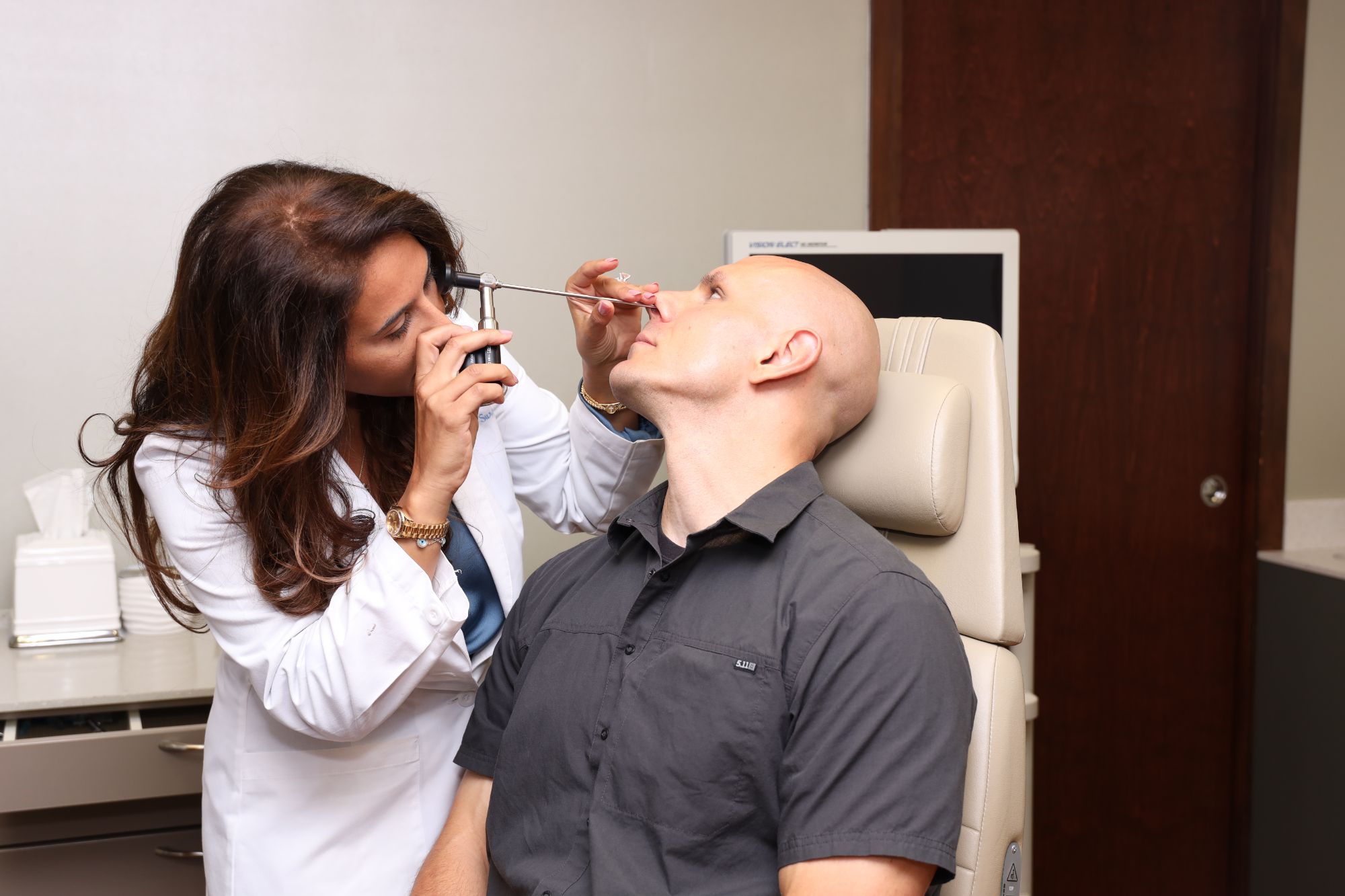There are four paired paranasal sinuses: maxillary, ethmoid, frontal and sphenoid.
- Maxillary sinuses are located in the cheek area and can cause facial pain that may radiate to the teeth.
- Ethmoid sinuses are located between the eyes and can cause pain that radiates to the eye area.
- Frontal sinuses are located in the forehead and can cause frontal headaches and pressure.
- Sphenoid sinuses are located in the center of the skull and can cause pain radiating to the top and back of the head. The sinuses, eyes, and ears all drain into the nose.
Symptoms of sinus disorders vary widely. Here are some tips addressing common issues that affect our sinuses.
1 – Keep Kleenex Handy
Clearing secretions by gently blowing your nose rather than inhaling alleviates sinus blockage and pressure.
2 – Use an Expectorant
An expectorant like Mucinex (Guaifenesin) is a medication used to thin out your nasal secretions, as well as a decongestant that will reduce swelling and sinus pressure. Home remedies include: high dose vitamin C, a personal steam vaporizer and saline rinses to moisturize and cleanse the sinuses.
Vicks can be placed on the upper lip skin just under the nose (never within the nostrils) to stimulate circulation. (Keep your head elevated on pillows while sleeping also help decrease swelling and congestion.)
3 – The Common Cold Is Usually a Virus
A virus after four to five days tends to block the sinuses and may trigger a Bacterial Sinus Infection. Unlike the common cold virus, bacterial sinus infections are generally not contagious.
4 – Signs & Symptoms of Sinusitis
- Headaches, pressure or pain in the sinus area.
- Fever.
- Yellow or greenish mucuous.
- Nasal stuffiness.
- Sore throat and coughing from a backdrip.
- Facial swelling. Acute sinusitis usually feels like a prolonged cold.
Chronic sinusitis may be more difficult to diagnose. Prolonged symptoms of headache, facial pain or sinus pressure that fail to resolve after antibiotics may indicate a chronic condition.
5 – See a Specialist for Treatment Options
If you have had two or more sinus infections, suffer from sinus pressure or headaches, it is best to seek out a specialist for an evaluation. An Ear, Nose and Throat Specialist (Otolaryngologist) can help guide you with treatment options and prevention.

